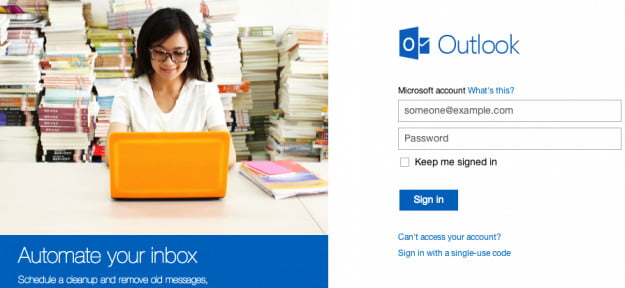PM's dept promises to square Hotmail, Gmail
The division which houses Prime Minister Julia Gillard and the Cabinet yesterday flagged it would bow to a demand from the Federal Auditor-General and square access to open email administrations, for example, Hotmail and Gmail from 1 July, with the reviewer seeing the stages as an inborn security chance.
In a give an account of the security of data held by government organizations, the Auditor-General Ian McPhee suggested that "offices ought not enable work force to send and get messages on office ICT frameworks utilizing open electronic email administrations", particularly getting out Hotmail and Gmail as precedents of such stages.
The issue with such administrations, as indicated by McPhee, is that they give "an effectively open purpose of section for an outer assault" and they subject offices and offices to "the potential for expected or unintended data divulgence".
The inspector's examination of the data security of a few offices — including the Department of Prime Minister and Cabinet (PMC), Medicare, ComSuper and the Australian Office of Financial Management — found that webmail accounts were available by staff in PMC, with logs demonstrating that some staff were utilizing the records "all the time". The inspector recorded more than one million hits on Hotmail accounts in a two-month time frame from PMC.
On the off chance that staff do expect access to webmail accounts, the inspector has recommended the utilization of a "web bistro" approach, wherein single remain solitary work areas inside these organizations can enable access to these sites.
In light of the examiner's suggestion, PMC said it would close down access to the webmail stages.
"Current access courses of action for electronic email will stop on 1 July 2011," the office composed. "While access to electronic email was in light of business prerequisites, there were control measures set up. Be that as it may, we acknowledge the danger and hazard evaluation has changed and access will never again be allowed from departmental frameworks."
The move brings up issues about the specialized contrasts between what the reviewer's office considers to be open webmail administrations, and corporate-centered email stages, for example, Microsoft's Business Productivity Online Suite and Google's Apps stage.
Microsoft's BPOS stage utilizes a great part of indistinguishable hidden innovation from its Windows Live stage (counting Hotmail), and depends on its Global Foundation Services framework spreading over datacentres around the globe. The same is valid for Google's Apps stage, which is focused at business and government utilize yet shares a similar foundation with its open Hotmail advertising.
A few extensive Australian associations have as of late moved to cloud-based email arrangements from either Microsoft or Google as a component of an influx of enthusiasm for the region traversing the previous quite a while. Likewise, a few associations are notwithstanding prescribing a few laborers utilize private email administrations for proficient purposes —, for example, Qantas with its flight orderlies — to disentangle organization of staff who probably won't require day by day access to email.
Microsoft and Google have not yet reacted to demands for input.
As a rule, the reviewer's report discovered that organizations had executed government security necessities well. "The offices had set up data security systems, had executed controls to defend data, to ensure organize foundation and avoid and distinguish unapproved access to data; and had controls set up to lessened misfortune, harm or trade off to ICT resources," the examiner composed. Be that as it may, it noticed a few regions, for example, the many-sided quality of passwords, customary fixing of programming, could be progressed.



Nhận xét
Đăng nhận xét